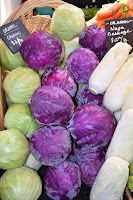Communications
WSDA joins a host of agricultural experts participating in the annual Tilth Conference in Yakima this weekend. Agency specialists from a wide range of disciplines will share their expertise and experience in workshops, meetings and presentations throughout the three-day event that begins Nov. 8.
Attendees will have a chance to explore topics such as crop and livestock production, pest and weed management, marketing, certifications, land access, and opportunities and challenges in agriculture.
WSDA staff are among the numerous speakers at the conference, and will cover a variety of topics including:
Market Expansion and Development
- Hear from our Farm to School team and learn the basics of selling to schools and how to get started.
- Later, our WSDA staff will be involved in a panel discussion offering practical guides and checklists for hiring and training (including what hires need to know), market day operations, food safety requirements, booth and display set-up, customer service, working with market managers, and vehicle safety.
- Get an update from the Office of the Washington State Veterinarian, including new outreach materials, animal disease status in the state, personnel changes, new programming, foreign-animal diseases of concern, regulation changes, and the new WSDA website.
Resource Opportunities to Support Farm Success
- Listen to a panel discussion on the Farm to Food Pantry initiative where participating farmers, food pantry managers, WSDA, and Harvest Against Hunger partners recount their roles within this initiative, share their vision for scaling it up and sustaining it statewide, and how attendees can participate in the effort.
- WSDA conducted their first season of inspections under the Food Safety Modernization Act’s Produce Safety Rule. Hear how farms responded and the results of these initial inspections. WSDA staff will share their inspection approach, the frequency of inspections and the prioritization process used by the WSDA Produce Safety Program.
- Take part in a Q&A with the WSDA Organic Program staff and get an overview about the program, as well as updates on program activities. The session is intended to answer certification questions, cover the organic system plan, as well as recordkeeping, forms, processes, and other things to know about certification.
 Market Expansion and Development
Market Expansion and Development- The newest edition of the Handbook for Small and Direct Marketing Farms (popularly known as the “green book”) is now available for free. In this workshop, attendees will hear from the experts behind the handbook, learn what’s new in this updated edition and how to find the information needed for your farm business.
Visit the Tilth event schedule for a full list of the talks, workshops and panel discussions.








